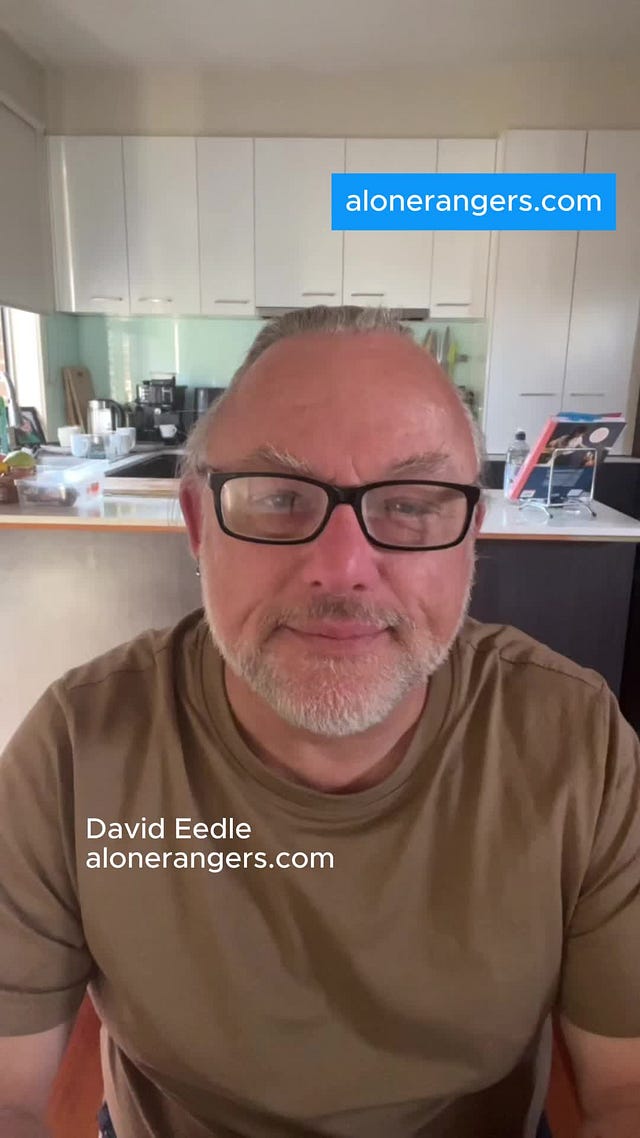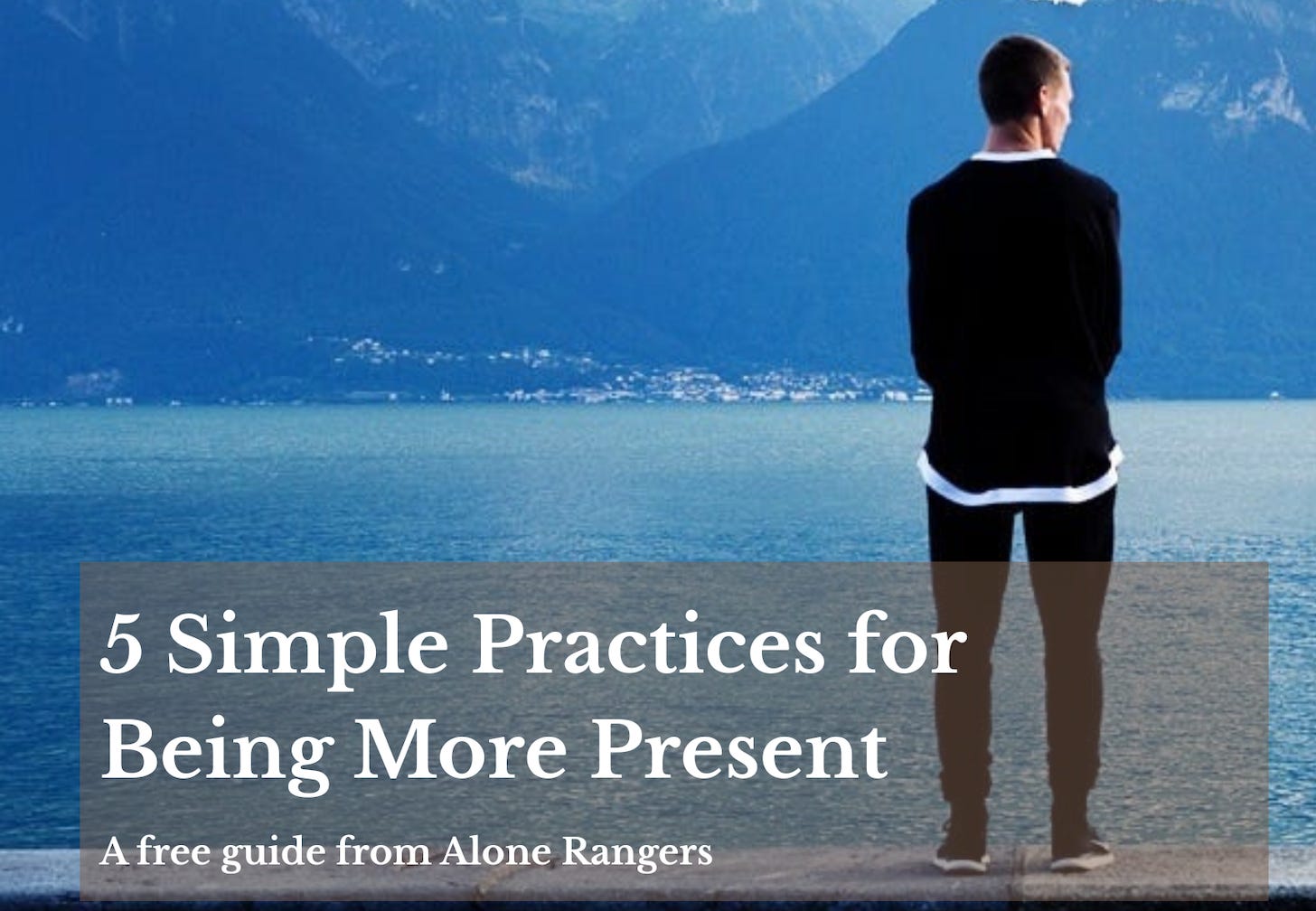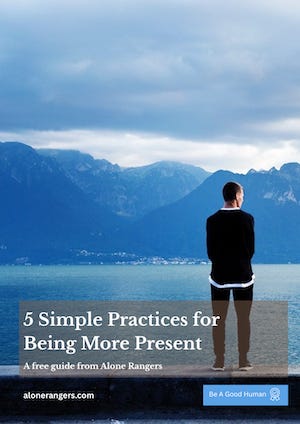Why Presence Matters More Than Productivity
Presence asks us to be more: to be more engaged and more alive to the moments that make up a life.
A few months ago, I picked up Cal Newport's "Slow Productivity" and found myself nodding vigorously - and recommending his book to friends. Here was someone articulating how our obsession with constant busyness is making us less effective, not more.
Newport's book challenges what many of us consider we ‘know’ about getting things done. His three principles —do fewer things, work at a natural pace, and obsess over quality —felt like a direct assault on the productivity culture that has colonised our minds and calendars.
Newport focuses primarily on reforming how we work. What I've come to understand is that we need to question whether productivity should be our primary metric for life at all.
I wrote about ‘The Power of Being Present: The Simple Habit That Can Change Your Life’’ back in March this year. It’s the first in a series of articles about ten qualities of a good human - dimensions of character to cultivate over a lifetime, and I’m making it a theme for the next couple of weeks, including launching a free guide to 5 Simple Practices for Being More Present.
Newport's research reveals how "pseudo-work" - the busy work that feels productive but accomplishes little - has become our default modus operandi. We've confused motion with progress, activity with achievement. We are constantly switching between tasks, responding to notifications, and mistaking frenetic energy for meaningful output.
His solution is straightforward: do fewer things with more intention, work at a sustainable pace that allows for deep thinking, and prioritise quality over quantity. I think that our productivity obsession is stealing something more precious than efficiency - our capacity to be present for our own lives.
Harvard research shows our minds wander nearly 47% of the time, and when they do, we're measurably less happy. That's almost half our waking hours spent mentally elsewhere, replaying yesterday's meetings, worrying about tomorrow's deadlines, or simply drifting through mental noise.
I’ve spoken about this in my first TikTok.

 Tiktok failed to load.
Tiktok failed to load.Enable 3rd party cookies or use another browser
Newport's principles provide a framework for better work, but presence offers something broader: a way of engaging with life itself. When we're truly present, we're not just more productive - we're more alive.
This distinction matters because productivity, even slow productivity, still centres achievement as the primary goal. Presence asks a different question: what if the point isn't to optimise our lives but to actually experience them?
I've spent years trapped in the productivity trap Newport describes. I’m fond of saying that my work diary used to look like a homicide scene before I stepped back from leading my business into a kind of semi-retirement, not forgetting the 50 aeroplane flights a year I scrambled to catch.
You don't become present by forcing mindfulness into every moment. You develop it gradually through creating boundaries, reducing distractions, and building capacity over time.
One of the most immediate ways to practice this is through mindful listening. Most of us listen with half an ear while formulating responses, checking our phones, or mentally preparing for our next task. Real listening, the kind where another person feels truly seen, has become increasingly rare.
The great thing about mindful listening is that it embodies both Newport's principles and the practice of presence. You're doing fewer things (just listening), working at a natural pace (conversation rhythm), and obsessing over quality (deep attention).
What Newport’s book helped crystallise for me is that our productivity obsession isn't just personal dysfunction. It's systemic. We live in what he calls an "attention economy" where tech companies profit from our distraction and workplaces mistake visible activity for valuable output.
Choosing presence becomes a quiet form of resistance. When you're fully engaged in washing dishes, you're not consuming content. When you're deeply listening to a friend, you're not generating data for advertisers. When you're tasting your lunch, you're not scrolling through carefully curated envy.
This matters more than we realise. The quality of our presence shapes the quality of our relationships, our work, and ultimately, our sense of meaning. You can optimise your life to perfection, but if you're not actually there to experience it, what's the point?
Presence asks us to be more: to be more engaged and more alive to the moments that make up a life.
Ready to move beyond productivity culture? I've created a free guide with five practices that can bring you back to the present moment, starting today.




